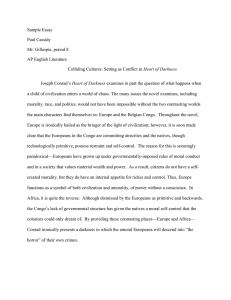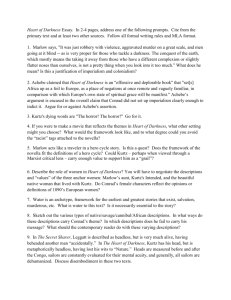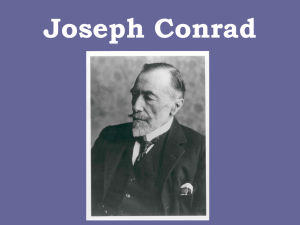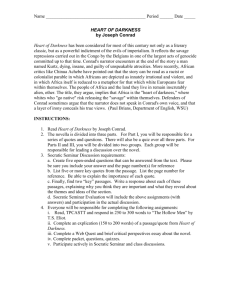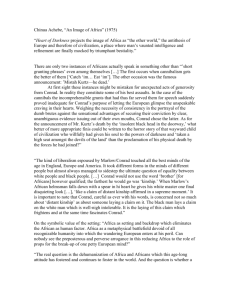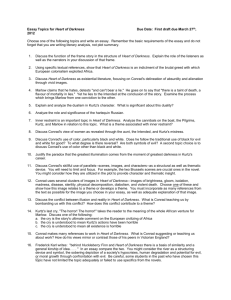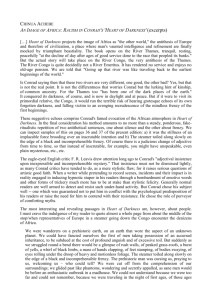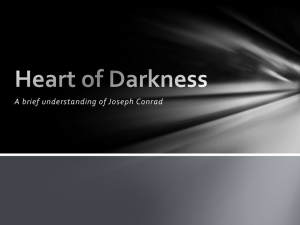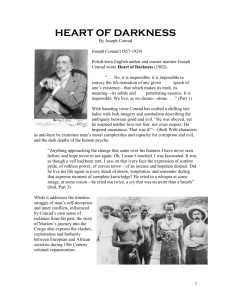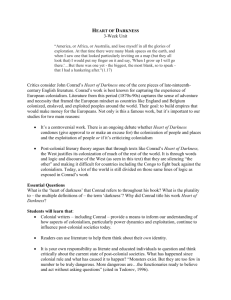College in the Schools: Introduction to Modern Fiction
advertisement
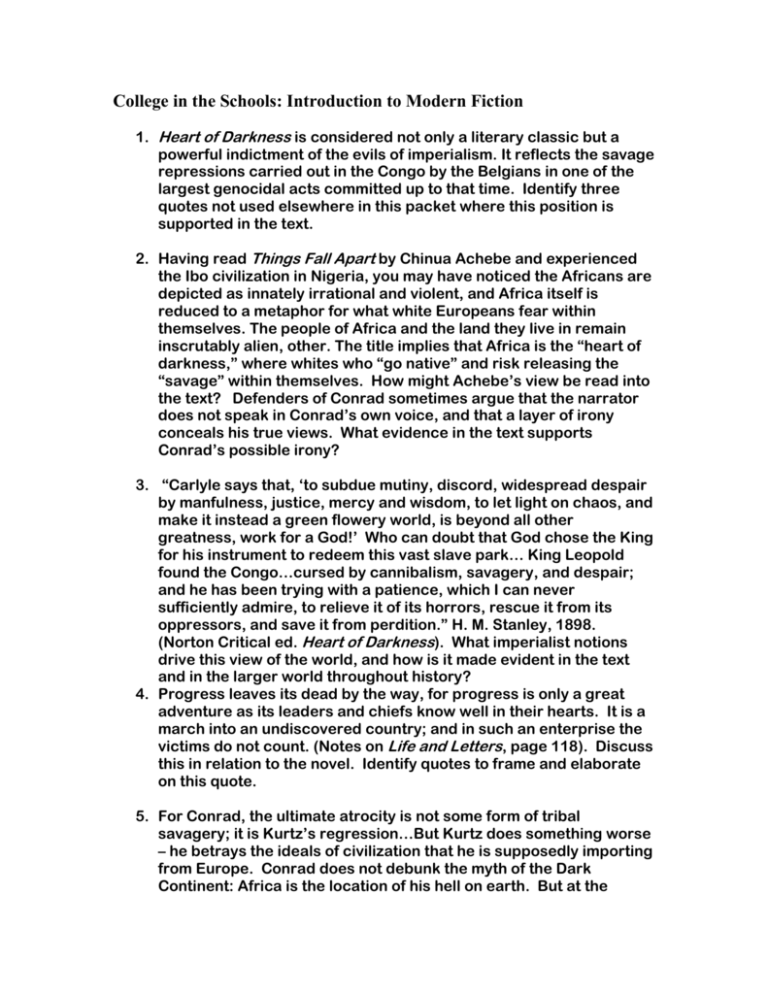
College in the Schools: Introduction to Modern Fiction 1. Heart of Darkness is considered not only a literary classic but a powerful indictment of the evils of imperialism. It reflects the savage repressions carried out in the Congo by the Belgians in one of the largest genocidal acts committed up to that time. Identify three quotes not used elsewhere in this packet where this position is supported in the text. 2. Having read Things Fall Apart by Chinua Achebe and experienced the Ibo civilization in Nigeria, you may have noticed the Africans are depicted as innately irrational and violent, and Africa itself is reduced to a metaphor for what white Europeans fear within themselves. The people of Africa and the land they live in remain inscrutably alien, other. The title implies that Africa is the “heart of darkness,” where whites who “go native” and risk releasing the “savage” within themselves. How might Achebe’s view be read into the text? Defenders of Conrad sometimes argue that the narrator does not speak in Conrad’s own voice, and that a layer of irony conceals his true views. What evidence in the text supports Conrad’s possible irony? 3. “Carlyle says that, ‘to subdue mutiny, discord, widespread despair by manfulness, justice, mercy and wisdom, to let light on chaos, and make it instead a green flowery world, is beyond all other greatness, work for a God!’ Who can doubt that God chose the King for his instrument to redeem this vast slave park… King Leopold found the Congo…cursed by cannibalism, savagery, and despair; and he has been trying with a patience, which I can never sufficiently admire, to relieve it of its horrors, rescue it from its oppressors, and save it from perdition.” H. M. Stanley, 1898. (Norton Critical ed. Heart of Darkness). What imperialist notions drive this view of the world, and how is it made evident in the text and in the larger world throughout history? 4. Progress leaves its dead by the way, for progress is only a great adventure as its leaders and chiefs know well in their hearts. It is a march into an undiscovered country; and in such an enterprise the victims do not count. (Notes on Life and Letters, page 118). Discuss this in relation to the novel. Identify quotes to frame and elaborate on this quote. 5. For Conrad, the ultimate atrocity is not some form of tribal savagery; it is Kurtz’s regression…But Kurtz does something worse – he betrays the ideals of civilization that he is supposedly importing from Europe. Conrad does not debunk the myth of the Dark Continent: Africa is the location of his hell on earth. But at the center of that hell is Kurtz, the would be civilizer, the embodiment of Europe’s highest and noblest values, radiating darkness. (Critical Inquiry 12, Autumn 1985). What has Kurtz become in the Congo? Why? What barbarity and savagery does he reveal? What is its source? 6. What does Conrad’s treatment of ‘the Intended’ and Marlowe’s lie to her reveal about Victorian women? What is this about and how does it echo elsewhere in history? How would it be a different tale told by women? 7. Marlowe defines civilization as the digging of “unostentatious holes to bury and stuff dead hippo meat in,” and calls Brussels a “whited sepulcher”, apparently a civilized place. Can you accept his definition of civilization? What do you think civilization should be? 8. Identify a theme or message conveyed through Conrad’s use of imagery related to water, nature, voice, religion, or civilization in the novel. 9. Form a working hypothesis as to the message of the novel. 10.How do you think this novel should be taught? How can one avoid perpetuating imperialist stereotypes of Africa to those who still see it as a ‘dark continent’?
